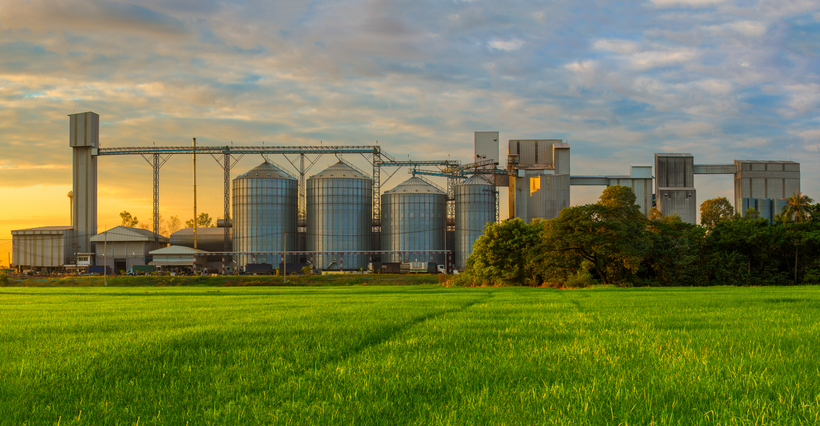Human health in the modern world is a conundrum. On the surface, we should be healthier than ever. We have more access to food and clean water than at any time in history. Doctors are more capable than ever, and medications can address almost any condition.
And yet, here we are. Human health is not improving. In even the richest nations, many health markers have declined in recent years.
Life expectancy in the United States, as one example, has been mostly flat for the last two decades. It was calculated by the World Health Organization at 76.8 years in 2001, and twenty years later, it had fallen slightly to 76.4 years.
We are looking for answers everywhere. Obesity is often blamed and is surely part of the problem. A lack of physical activity in modern life could also be contributing, as could mental health issues.
But what if the answer was simpler than any of those explanations? What if it was right under our feet the whole time?
A Divorce from Nature
For nearly all of human history, people grew and harvested their own food. Growing food was just part of life. It was impossible to exist any other way, and being one with the land was as natural as breathing.
Things are different today. Most people have no idea where their food comes from or how it was grown. Nature is more commonly seen as an enemy – bugs, bad weather, and the like – than it is an ally. The change has been dramatic, and not necessarily beneficial.
According to the Food System Primer from Johns Hopkins University, widespread agriculture has existed for around 7,000 years. Yet industrial agriculture has only been a feature of the system within the last century or so. As it has spread, and the use of synthetic fertilizers has grown, we have become even further separated from the natural world around us.
The Essential Role of Copper in Human Health
Copper plays a surprisingly vital role in human health. This is not an optional mineral. It’s not something that is just nice to have. It’s essential, and it’s becoming harder and harder to find.
What is it that makes copper so important to our collective health? The National Institutes of Health reports that copper is needed for energy production, iron metabolism, neuropeptide activation, and many other functions. While only a modest amount of copper is stored in the body, it is critical that the necessary levels are maintained. For men and women, intake of approximately 900 mcg/day of copper is ideal.
Industrial Farming Has Robbed Our Food
It’s easy to be seduced by the positive sides of industrial-scale farming. Yields are off-the-charts compared to previous forms of farming the land. Crops are resistant to many types of diseases that would have wiped out entire fields previously. And, in some cases, the price of staple foods is kept incredibly low.

Those are only the pros, however. There is a cons list to be considered, as well, and it can leave one wondering if the cost is worth it in the end.
Perhaps the biggest threat of industrial farming is the way it has stripped the nutritional value out of many of our most important foods. A paper published in the journal Foods highlights the scope of the issue. The paper shows that the quantity of minerals available in common crops has declined significantly over the past sixty years.
In many cases, elements have dropped off at a rate of 50% or more. Copper was found to be reduced by 49% as compared to levels seen 50-70 years ago. Other valuable elements that have declined notably include sodium, iron, and magnesium.
The paper points to the methods used in industrial farming as the root cause of the issue. Crops are optimized for things like additional yield and growth rate, but not for levels of nutrients. As cycles of crop development have come and gone over the decades, nutrient levels have gradually declined as a natural result of the priorities of the industrial farming industry.
Is Copper Toxicity a Real Threat?
Some people have been led to believe that humans are overloaded with copper. That we have already reached toxic levels, and we need to take a step back and protect ourselves from this mineral. This copper toxicity myth is misguided.
The Nutrition Source, a publication of the Harvard T.H. Chan School of Public Health, states that copper toxicity is rare in otherwise healthy individuals. For most people, in most situations, reaching a level of copper in the body that is considered toxic is simply unlikely to occur.
The Danger of Copper Deficiency
On the other side of the coin, copper deficiency offers some notable threats to human health. A paper in the Journal of Community Hospital Internal Medicine Perspectives states that clinical copper deficiency is now more frequently recognized.
Copper deficiency symptoms can be quite serious. They include anemia, which can result in fatigue and weakness, along with a loss of coordination and balance, and potential nerve damage. Some individuals will also experience osteoporosis, an increased risk of infection, and impaired memory.
Maintaining proper levels of copper in the body is important, yet deficiency is becoming more common. A problem that wasn’t often seen in previous generations is now presenting more often in the age of industrial agriculture.
Supplements Are Not the Answer
Many essential vitamins and minerals can be supplemented in synthetic form when they aren’t consumed in necessary quantities in the diet. Supplements are available today for just about everything humans need to stay healthy, and many of them work well.
Copper seems to be an exception. It’s easy to take enough copper in supplement form to meet the daily suggested levels, but how well that copper will be absorbed is another question. The bioavailability of copper in a supplement seems to fall short of what is seen with copper in whole foods. Competing materials also present in supplements, like zinc, can prevent copper from being properly absorbed. Using copper supplements for people who are deficient may be better than nothing at all, but it doesn’t seem to be a proper replacement for the real thing.
Finding the Right Food Sources
The answer here is to consume the right types of food to acquire the necessary levels of bioavailable copper daily. While it’s true that industrial farming has stripped much of the copper out of our foods, it’s not all gone. By eating the right type of diet, it remains possible to get healthy levels of copper without having to turn to supplements.

Beef liver is the leader when it comes to getting copper into the human body. This food contains a higher concentration of copper than any other. Just a few ounces of beef liver nutrition can deliver more than 16,000 micrograms of copper. Eating this food once per week is a quick and easy way to eliminate any worries over copper deficiency.
For those who don’t want to consume beef liver, other strong sources of copper exist. Those include oysters, mushrooms, cashews, sunflower seeds, and potatoes. Being intentional with dietary choices is likely the best available option currently to get around the harm that industrial farming has done to the nutrient load of many modern crops.
Rethinking Our Relationship with Health
Losing our connection to the land has had serious impacts on human health. Turning over the responsibility of growing and harvesting food to large corporations has come with benefits, to be sure, but also drawbacks that have chipped away at the nutrients critical to life.
There isn’t an immediate, simple solution to the problems that have been raised by industrial-scale farming. Individuals, however, can act in their own best interests to limit the damage. That starts by finding the right food sources for bioavailable copper, as mentioned above. Some people will even grow a portion of the food they eat, finding valuable nutrition right in their own backyards.
We believe in the value and importance of copper. At CopperSmith, our many custom-made products are not only beautiful and functional, but they also deliver important health benefits to users. In both residential and commercial settings, our copper pieces provide antimicrobial properties and feature the durability needed for decades of reliable performance.


